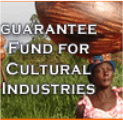Faber/Abref Financing Renewable Energy Projects in Africa
Bionergy has recently been developing rapidly and now presents great opportunities for su stainable development and climate change mitigation mechanism in Africa.
stainable development and climate change mitigation mechanism in Africa.
Despite these opportunities, developing countries still face difficulties in financing bioenergy projects and programmes. This has become a major impediment to develop the biofuels sectors in Africa and the sub-region. The reason for this difficulty is that, African continent has rich supplies of natural resources and high potential for biofuels in renewable energy but less than 2% of Clean Development Mechanism (CDM) projects currently originate from the African continent due to higher perceived risks by investors. However, African Biofuels and Renewable Energies Fund (ABREF) emerged to bridge the barriers. ABREF was set up to help overcome barriers and facilitate greater flows of investment into African biofuel and renewable energy projects in such a manner which promotes sustainable development while at the same time contributing towards the reduction of greenhouse gas emissions in the atmosphere. The African Biofuel and Renewable Energy Fund Project (ABREF) was initiated in 2007 by the ECOWAS Bank for Investment and Development (EBID), the African Financial Institutions and the Member States of ECOWAS. The Project, which has attracted the support of the African Development Bank (ADB) and the World Bank, covers all the five (5) regions of Africa with the cooperation of the Central African States Development Bank (BDEAC), the PTA Bank and the Development Bank of Southern Africa (DBSA).
The ECOWAS and UEMOA Commissions have signed a memorandum of understanding to support the initiative.
The fund contributes to the development of the biofuel and renewable energy industry in the African region, with a particular focus on West African countries. In doing so, the fund aim to provide investors with superior returns through investments in biofuels and renewable energy projects which will generate Certified Emission Reductions (CERs). Investors in the fund will receive CERs as part of their investment in the fund.
The fund is targeted on all Africa countries but in the first phase in 2008, it was emphasized on the ECOWAS counties: : Benin, Burkina Faso, Cape Verde, Côte d’Ivoire, Gambia, Ghana, Guinea, Guinea Bissau, Liberia, Mali, Niger, Nigeria, Senegal, Sierra Leone and Togo. The fund considered any projects which have an ability to generate Certified Emission Reductions (CERs) through the Clean Development Mechanism of the Kyoto Protocol. In particular, the fund focuses on investing in and procuring CERs from the following project types:
· Biofuels
· Fuel-Switching to Biomass Energy
· Hydro power
· Wind
· Methane leakage avoidance from gas lines
· Methane capture from landfills